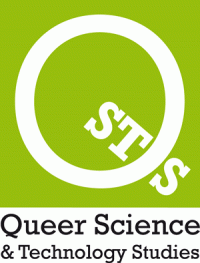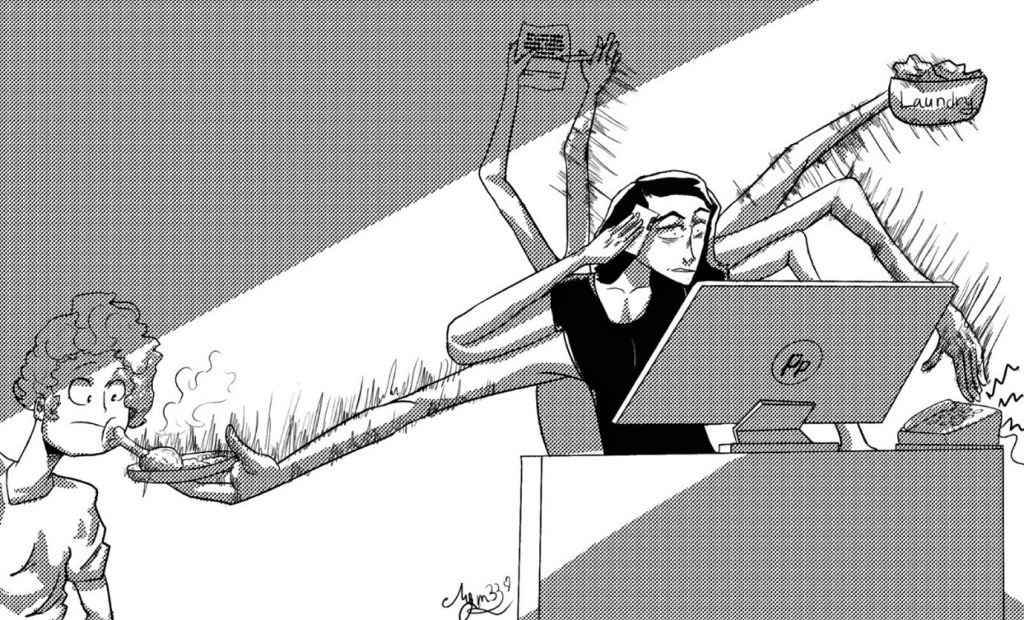Dear colleagues and friends!
For some time now I have been trying to find words to express my experience of coping with COVID19 era as a woman, mother, wife, grandmother, researcher, lecturer, psychotherapist, manager, and head of department. What is the difference between my coping with multiple demands and expectations prior and after March 2020? What words can represent or demonstrate those differences?
There is a constant sense of lack of boundaries and difficulties in regulating work demands and other life needs of different domains; Whether it be the wish to be with my family, ‘taskless’ time for myself, a wish to actualize recreation activities – swimming, longing for hours of reading books, or even a time-out to browse them briefly, those books that are stacked for months, waiting, interwoven with bookmarks, walking, designing, long hours of talks with friends..
It sums up to a bigger effort that is required to regulate academic work demands, psychotherapy and the need to be home with my family.
This constant battle over time is accompanied with constant thoughts of how to plan the agenda, how to make enough time for research, writing, publishing etc…What is the meaning of time is such a period?
But then other thoughts come up: it is a good thing that I am so preoccupied and have the privilege to choose where to be and what to do, while others face more and more uncertainty, lack of control, many losses, and economic distress? All of these make it much more challenging and harder to deal with for so many in close and more distant circles.
For me COVID19 emphasizes life’s fragility, the meaning of physical health, the need to adapt quickly and to be flexible to constantly changing and instable reality.
Knowing and understanding the meaning of mental and physical health have always been there, in the background of our daily existence, but life ‘within the corona pandemic’ provided us with a more concrete experience, following with inner discourse and existential questions – what is this rat race all about? Where does it lead us to? What cause does it serve?
Zoom, WhatsApp, Video Chat and other technologies have mitigated the shock, enabling continuous communication in different circles – family members, friends, employees, employers etc. These technologies have provided a sense of closeness and continuity despite circumstances of isolation and quarantine which have been imposed upon us for months.
E-teaching and e-therapy, which used to be regarded as less realistic, are now commonly acknowledged, and almost unbelievably accepted. Their advantages will enable their further implementation in the future, as well as the need to balance them with face-to-face encounters that cater for more basic needs of human interaction.
But the obvious advantages of technology have also intensified the difficulty of setting clear boundaries. Corona has invaded our lives as well as work demands that have invaded our homes, encompassing us day and night.
Endless tasks have intruded our schedules, from research, writing, teaching, psychotherapy to management…leading us to a clear conclusion: priorities must be made, schedules must be redefined.
Corona made it clear how fragile life is, therefore, a constant question arises: What is the point in this endless rat race, regarding all the above-mentioned?
Wouldn’t it be the right thing to just let go and make space for myself, my family, my leisure?
This endless race prevents any recess, any possibility to enjoy any achievements.
The importance of time and its significance to our psyche is more and more evident, the necessity to balance and regulate between the needs of “self”, family, and career.
And as in trauma, the time dimension gets another space, another interpretation…surely a subjective one.
Corona has halted time, we are waiting for it to be gone, we are waiting for old times and pre-corona habits to return…But is there really any chance for such times to reoccur?
I would like to conclude my essay with a poem by Yehuda Amichai[1], a poem which so eloquently expresses this internal and external discourse about the meaning of time and its significance in the lives of individuals. Although published in 1978 in a poetry book dedicated to the issue of time, its theme is so appropriate to this corona times of ours today, even 42 years after its publication:
Yehuda Amichai: ‘A Man in His Life’[2]
A man in his life has no time to have
Time for everything.
He has no room to have room
For every desire. Ecclesiastes was wrong to claim that.
A man has to hate and love all at once,
With the same eyes to cry and to laugh
With the same hands to throw stones
And to gather them,
Make love in war and war in love.
And hate and forgive and remember and forget
And order and confuse and eat and digest
What long history does
In so many years.
A man in his life has no time.
When he loses he seeks
When he finds he forgets
When he forgets he loves
When he loves he begins forgetting.
And his soul is knowing
And very professional,
Only his body remains an amateur
Always. It tries and fumbles.
He doesn’t learn and gets confused,
Drunk and blind in his pleasures and pains.
In autumn, he will die like a fig,
Shriveled, sweet, full of himself.
The leaves dry out on the ground,
And the naked branches point
To the place where there is time for everything.
I wish us all to find the time to be with whom we love and do whatever we love, and most importantly to find the strength to regulate and balance all our wills and wishes within the suitable boundaries for us, stemming from listening to our inner voice which will lead us to the right realization of our preferences and choices.
We can perceive corona in black-and-white (as in figure 1) or in more optimistic colors (as in figure 2) – it’s up to us. My simultaneous coping with abundance of challenges during this time encourages and reinforces a more optimistic perspective within me; Optimism which stems from this fundamental hope for better adjustment and balance between more and more colors and tones.
Best wishes for stable health to us all,
Hana
figure 1
figure 2
[1] Yehuda Amichai (1924 –2000), poet, writer and playwright, is considered, both in Israel and internationally, as Israel’s greatest modern poet, and one of the leading poets worldwide. Awarded the 1982 Israel Prize, international poetry prizes and was nominated for the Nobel Prize in Literature on several occasions. https://en.wikipedia.org/wiki/Yehuda_Amichai
[2] https://medium.com/poem-of-the-day/yehuda-amichai-a-man-in-his-life-dbf09a159bed
Bio
Dr. Hana Himi, Israel, Senior lecturer, Head of the Master’s Program Youth at Risk in the Criminology and Criminal Justice Department – Faculty of Education; Gender Equality Officer and Supervisor for the Prevention of Sexual Harassment in Beit Berl Academic College; Psychotherapist and Director of the Clinical Unit in NATAL – Israel Trauma and Resiliency Center
My view on COVID-19 pandemic:
Optimism and hope stemming from ‘listening to our inner voice’, for better balance between multiple and simultaneous challenges
Hana Himi, (female) PhD. holds BA degree in Social Work from the Hebrew University in Jerusalem, MA and PhD degrees from the Department of Criminology of Bar Ilan University and Graduate Certificate from the Psychotherapy Program of Haifa University. Dr. Himi has served many years as Mental Health Officer in the Israel Defense Forces (IDF), working with soldiers who suffered crisis and trauma. She holds both clinical and academic careers as: (a) psychotherapist (since 2000) and Director of the Clinical Unit in NATAL (since 2019) – Israel Trauma and Resiliency Center (NGO), which supports victims of trauma due to terror and war; and (b) Senior lecturer (since 2015), Head of the Master’s Program Youth at Risk in the Criminology and Criminal Justice Department – Faculty of Education (since 2017), Gender Equality Officer (since 2014) and Supervisor for the Prevention of Sexual Harassment (since 2016) in Beit Berl College. Between those years she had fulfilled academic- managerial positions, such as Head of the Youth Care Workers Track in the Faculty of Education (2006-2010) and Head of the Criminology and Criminal Justice Program in the Faculty of Society and Culture (2010-2014). Her fields of research interest are men as victims, aggression and violence, trauma, Logotherapy (this constituted the subject of her master’s thesis and Ph.D. dissertation), and the issues of Youth At-Risk, and post-trauma. Based on her organizational position as GEO, Dr. Himi is currently participating in the H2020 CHANGE project (No. 787177) as Transfer Agent (TA) and leads the BBC TA team (consisting of four additional Tas) in implementing the work packages and Gender Equality Plans (GEPs) on BBC campus, as well as among additional stakeholders on a national level.
Recent publications
- Himi, H. & Bonny-Noach, H. (2018), Personal and Professional Attitudes and Behavioral Patterns Concerning Cannabis Use of Teachers and Youth Workers in Israel, Journal of Drug Issues (JDI), Volume: 48 issue: 1, page(s): 67-77. I.F=1.33
- Vignansky, E., Addad, M., Himi, H. (2018), Despair Will Hold You Prisoner, Hope Will Set You Free: Hope and Meaning Among Released Prisoners, The Prison Journal, Vol. 98, issue 3: pp. 334-358.
- Carvalho, T., Diogo, S., Breda, Z., Mešková, V., Himi, H., Dahmen-Adkins, J. & Jordão, C. (2019), A comparative approach on the relevance of national gender equality legal ramework to improve equality at the institutional level, Journal of International Women’s Studies [accepted for publication]


